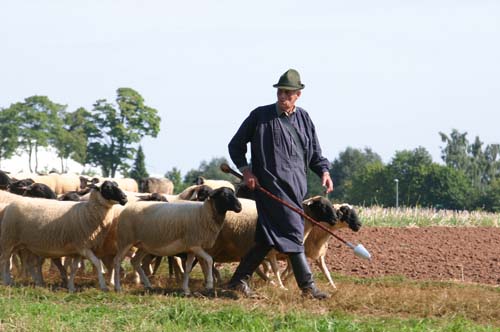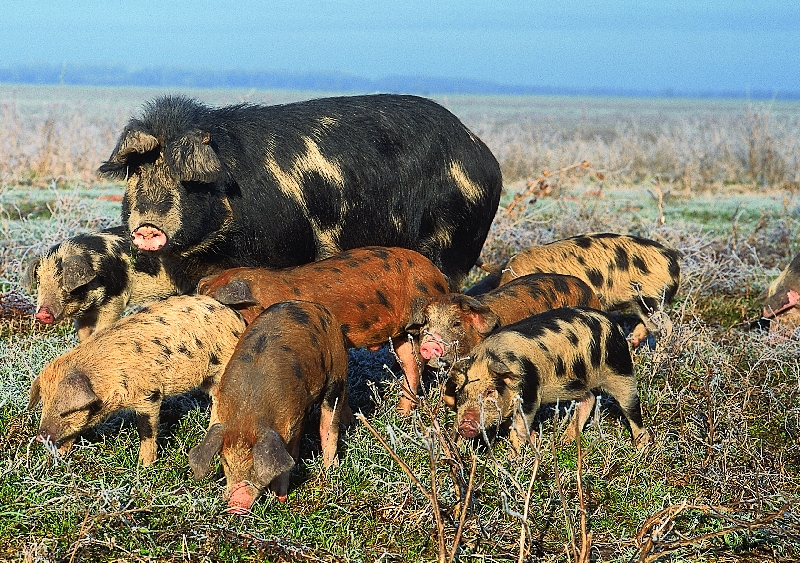The SAVE Foundation has long lobbied for the establishment of Rescue Stations for rare breeds. Experience has shown that, in acute cases, rescue of animals threatened by slaughter is only possible when an existing network is in place.
 |
| photo: C. Simantke |
Rescue operations in Switzerland were successful because, through personal networks, emergency placements of endangered animals or herds were possible.
The rescue operation of the Turopolje-pigs during the civil war in Croatia 1992 was successful because Zagreb Zoo had already declared itself prepared to take animals at short notice (in the Quarantine Station due to space restrictions).
 |
|
photo. M. Schneider-Jacoby
Turopolje pig found in Croatia (land of origin) and Austria. The story of the Turopolje rescue action was one of the foundation stones for the European Ark and Rescue Net. The Turopolje pig is an important partner in nature conservation projects, the swamp areas of the Sava Plains in Croatia are kept free from scrub growth by these free-ranging pigs. Many bird species, insects and small mammals benefit from its work.
|
With the dissolving of the Rumanian Genebank for Poultry in Moseni at the end of the 1990s (due to economic reasons) the, in some cases genetically extremely valuable birds, were distributed to farmers as there was no other possibility to place them. This genetic material was subsequently lost.
The above examples show that there is an urgent necessity for a functioning network of Ark and Rescue Centres which can act as Rescue Stations, Ark Farms for conservation and breeding purposes and farm-animal parks open for public viewing. Thus, it becomes possible to achieve competent rescue of the right animals at the right time, competent breeding overseen by experts and a competent show of animals and products.
With the inclusion of Ark Farms in Council Regulation (EC) No. 870/2004 it is possible to launch the ELBARN project as a concerted action. In collaboration with the four project partners - Euronatur, GEH, SLE and RARE – a workshop was held in Kutna Hora, Czech Republic in February 2008. This workshop was attended by a number of experts in the field of animal genetic resources as well as related fields. At the workshop the themes Rescue and Quarantine, Ark Farms, Breeding and Marketing/Sustainable Use were discussed in work groups and in plenary sessions. These discussions are the basis of the guidelines that follow.
We would like to thank everyone who took part in the workshop and, also, those who helped in the long process required to move from ideas and questions to usable guidelines. This is, however, not the end of the process, a functioning network of Ark and Rescue Centres is strived for – from the technical and coordination aspects (with funding from the EU) to future practical action on the ground. Until this is achieved the work will continue to ensure the in-situ/on-farm survival of Europe’s traditional livestock breeds.
Elli Broxham, ELBARN Project Manager
SAVE Foundation
February 2009
Read more: ELBARN Guidelines for Rescue Actions and Rescue in the Case of an Outbreak of Disease